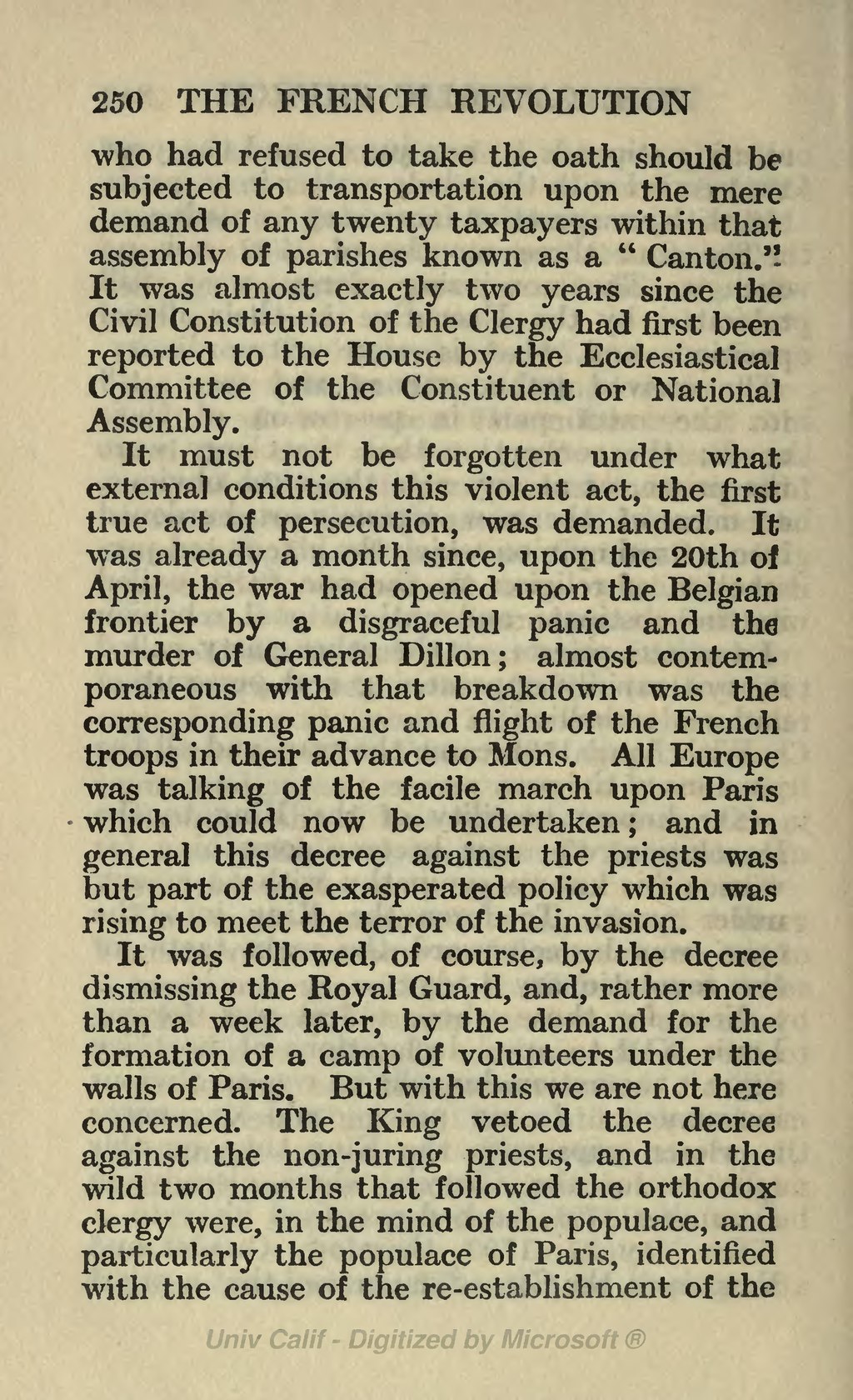who had refused to take the oath should be subjected to transportation upon the mere demand of any twenty taxpayers within that assembly of parishes known as a “Canton.” It was almost exactly two years since the Civil Constitution of the Clergy had first been reported to the House by the Ecclesiastical Committee of the Constituent or National Assembly.
It must not be forgotten under what external conditions this violent act, the first true act of persecution, was demanded. It was already a month since, upon the 20th of April, the war had opened upon the Belgian frontier by a disgraceful panic and the murder of General Dillon; almost contemporaneous with that breakdown was the corresponding panic and flight of the French troops in their advance to Mons. All Europe was talking of the facile march upon Paris which could now be undertaken; and in general this decree against the priests was but part of the exasperated policy which was rising to meet the terror of the invasion.
It was followed, of course, by the decree dismissing the Royal Guard, and, rather more than a week later, by the demand for the formation of a camp of volunteers under the walls of Paris. But with this we are not here concerned. The King vetoed the decree against the non-juring priests, and in the wild two months that followed the orthodox clergy were, in the mind of the populace, and particularly the populace of Paris, identified with the cause of the re-establishment of the

